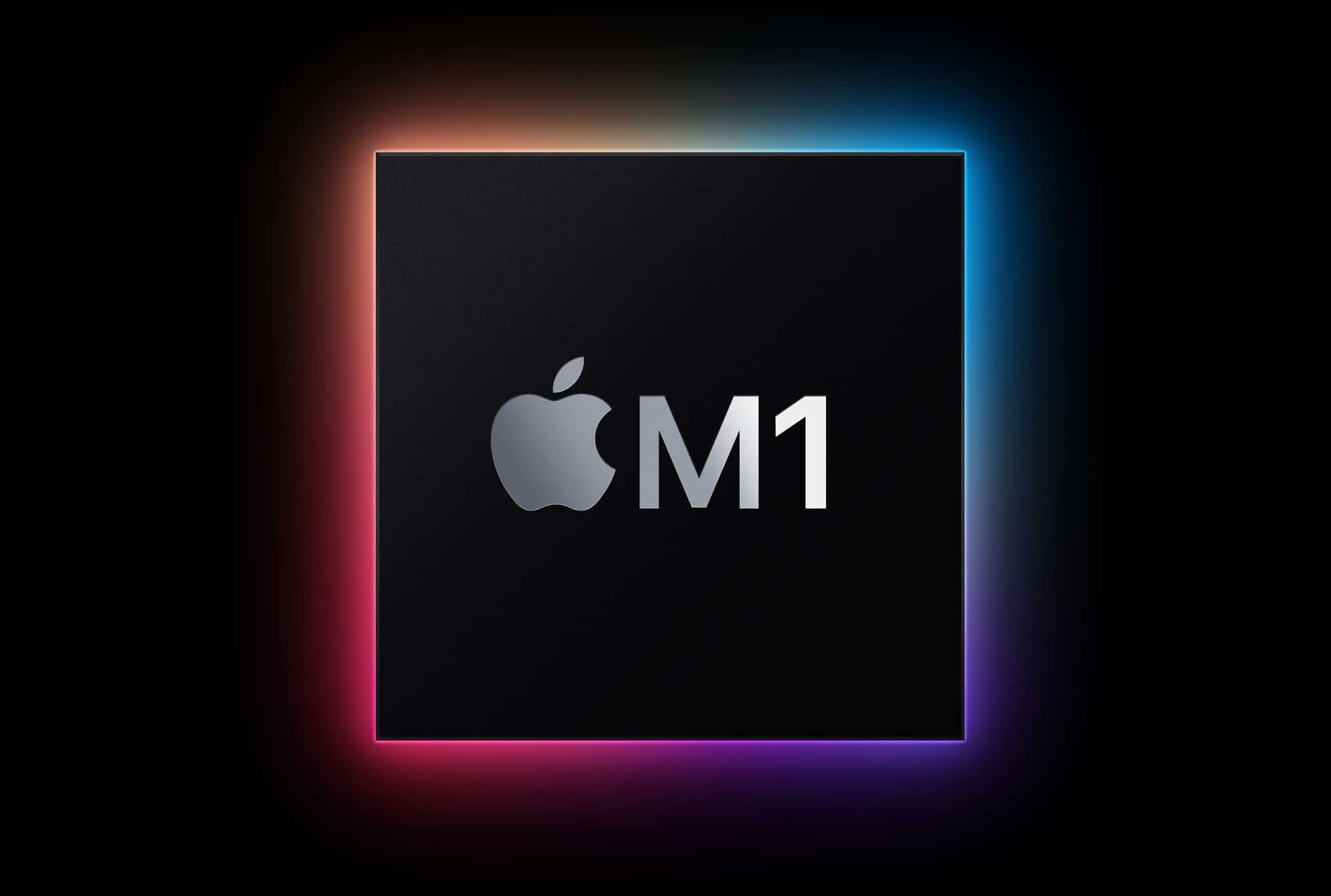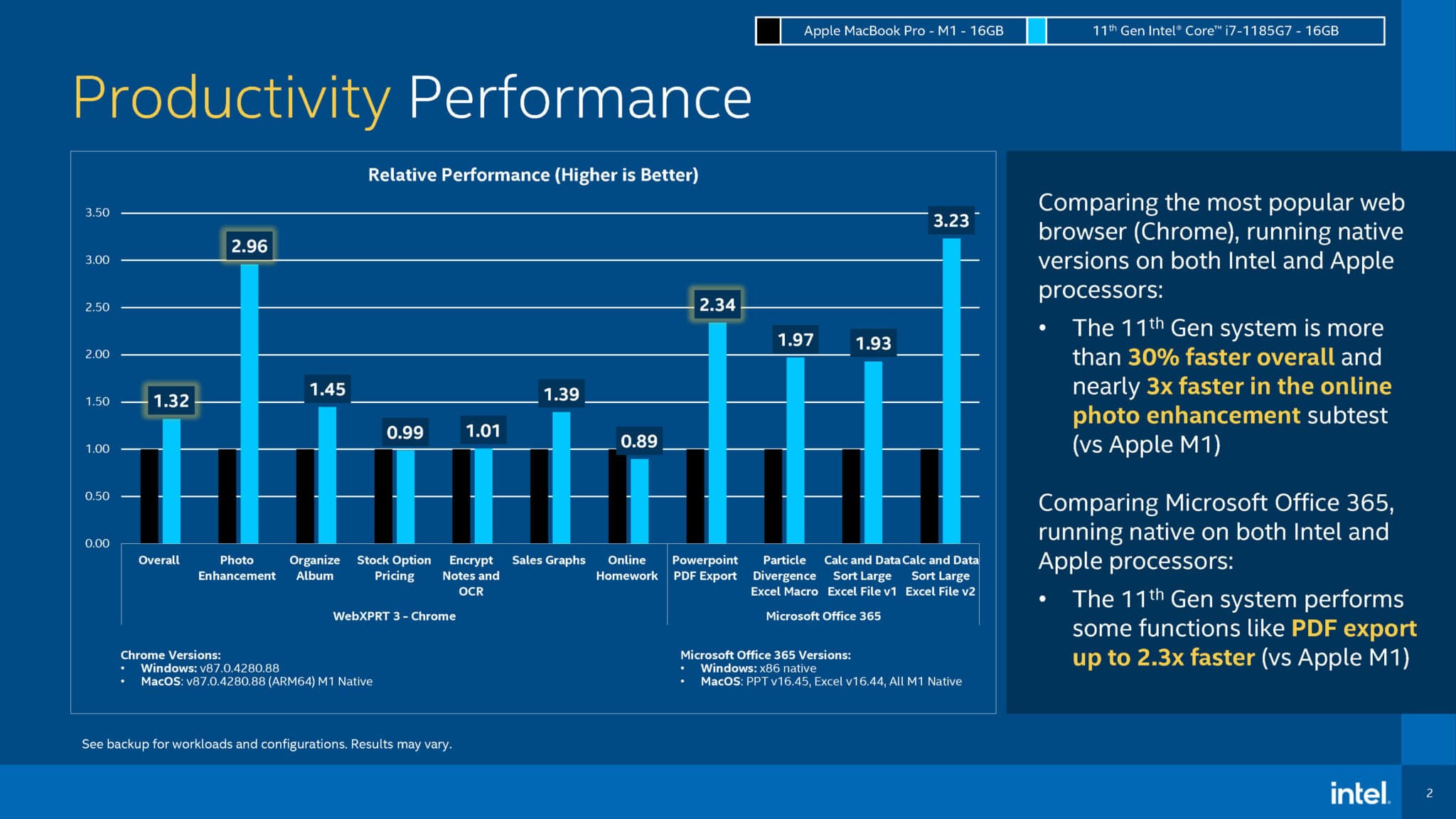
Apple’s M1 chip has been a wake-up call for Intel whose chips have failed to push the boundary in terms of performance and efficiency over the last few years. The company has now shared some benchmarks comparing its 11th gen Core processors to Apple’s M1 chip showing how its offering is better.
The benchmarks and scenarios are handpicked by Intel just to show how its latest 11th gen. CPUs are better than Apple’s offering in every department. One of the benchmark slideshows shows Intel making claims that an 11th gen. Intel CPU-based system is around 30% faster overall and 3x faster in photo enhancement subtest compared to a Mac with an M1 chip. Similarly, Intel claims that while running Office 365, exporting a PDF is up to 2.3x faster on an Intel machine.

Another benchmark slideshow from Intel claims that its 11th gen. Core CPUs offer notably better AI performance than M1 Macs, with the performance advantage being up to 6x in some cases. It also shows some benchmarks of Photoshop and Lightroom Classic in which the M1 MacBook is behind the 11th gen. Intel PC, with the latter being up to 1.7x times faster in exporting H.265 videos. Some key features like Content Aware Fill and Photo Merge HDR Panorama are also not available on the M1 MacBook for now, though that’s understandable since the app is still in beta for the new chips.
In the gaming department, Intel paints the M1 chip in a bad light by naming some popular gaming titles like ‘Rainbow Six Siege,’ ‘Doom Eternal,’ ‘Overwatch,’ ‘PUBG,’ ‘Microsoft Flight Simulator 2020,’ and more which simply do not run on the M1 MacBook. For games that do run on both platforms, both Intel and Apple trade blows with each other.

One of the most bizarre claims that Intel makes is that an 11th gen. CPU-based laptop offers similar battery life as the M1 MacBook Pro. Intel pitted an Acer Swift 5 featuring the 11th gen. Core i7-1165G7 CPU against the M1 MacBook Air in a battery drain test. Both machines lasted for nearly the same time: 10 hours and 12 minutes for the Mac and 10 hours and 6 minutes for the Acer. The catch here is that Intel did not use the same 11th gen. CPU for benchmarks that it used for the battery life tests. For the battery life benchmarks, Intel used an M1 MacBook Air instead of the M1 MacBook Pro that was used for benchmark comparison.
Intel also highlights other limitations of the M1 MacBook platform in its slides including the inability to use more than one external display, lack of support for eGPUs, gaming controllers, external webcams, Wacom drawing tablets, and more.
Our Take
Going by the benchmark slides shared by Intel, one might think that its 11th gen. Core CPUs are better than Apple’s M1 chip. However, that’s not exactly the case. The M1 chip is Apple’s first custom CPU for its Mac. In its first try, Apple has managed to design a chip that offers better power-to-performance than Intel CPUs. The latter has also shown only those scenarios and benchmarks which favors its CPUs. In real life, an M1 MacBook is going to last notably longer than an 11th gen. Intel-based laptop.
There are plenty of areas where the M1 chip does indeed fall behind Intel CPUs but given Apple’s rapid pace of innovation, it is only a matter of time before that changes.
[Via PCWorld]